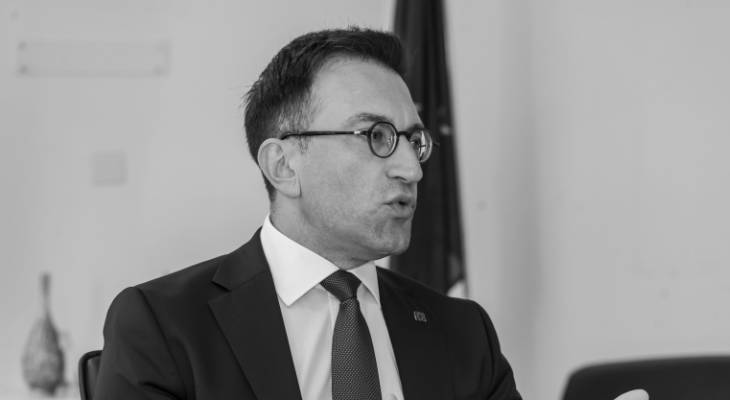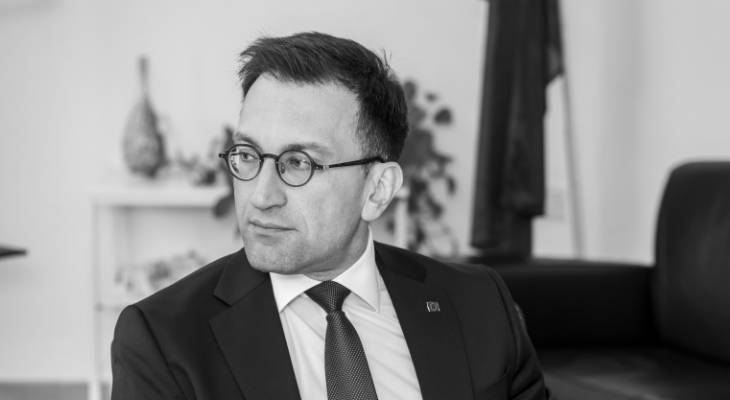2019 feels like ages ago, but in actual fact it has only been five years since the von der Leyen Commission took office in December 2019. In fact, neither Madam President von der Leyen herself, nor any of her cabinet of Commissioners or the rest of the European continent for that matter, could have predicted the unbelievable and unprecedented chain of events that was to unfold in this relatively short period of time.
It would be safe to say that this particular commission had its work cut out for it, what with a global pandemic, an unprovoked war of aggression on our continent, the worst energy crises in decades and the first ever exit of a member state, this was possibly one of the most challenging legislatures in the bloc’s history.
“From the very beginning, the von der Leyen Commission promised to be bold and ambitious. In fact, inspired by the aspirations of EU citizens, the Commission outlined a set of priorities which provided direction. Despite the pressures of multiple crises, the Commission managed to look ahead and address crucial challenges of future generations of Europeans. We have shown that our Union is at its best when we are bold,” says Lorenzo Vella, the Head of EC Representation in Malta.

Mr Vella explains how the European Commission was instrumental for all countries in the union to receive lifesaving COVID-19 vaccines in record time and more significantly at the same time, irrespective of the size of the member state. “The Commission secured up to 4.6 billion vaccine doses, on behalf of Member States, to protect Europeans and to share with partner countries. This has led to countries opening up their borders and going back to normality earlier than expected, supported by the EU Digital COVID Certificate which provided a safe and practical tool for travel.”
Furthermore, the Commission was ready to support companies and their employees during, and in the aftermath of the pandemic, through SURE, the Support to mitigate Unemployment Risks in an Emergency. “In 2020, SURE kept 2.5 million companies open and 31.5 million Europeans employed, avoiding a massive economic and social crisis,” Mr Vella explains.
“Looking ahead, a real boost of confidence in the economy was necessary, and this came to the tune of €800 billion, under the NextGenerationEU. In fact, hundreds of projects have already been funded through the recovery plan and are already delivering tangible results for Europeans. This is our Union powering Europe’s recovery.”
The European Union was also steadfast in its resolve to stand by Ukraine in its time of need. “Once again, here the Commission rose to the occasion. We paved the way to hosting more than 4 million Ukrainian refugees in the EU. We organised the delivery of unprecedented humanitarian, financial and military assistance from the EU and Member States, reaching almost €98 billion so far, including €33.1 billion in military support. And we are working closely with our G7 partners to make sure every euro goes where it is most needed in Ukraine,” Mr Vella continues.
“As the war threatened to trigger a global food crisis, we opened Solidarity Lanes, which helped export 122 million tonnes of Ukrainian goods, to the countries that relied on them, including nearly 64 million tonnes of agricultural products, mainly for export,” Mr Vella reveals.
The Russian attempted invasion of Ukraine has shone a new light on the subject of security and defence. “The European Commission has developed a new European Defence Industrial Strategy bringing strategic focus and coordinate efforts in research, industrialisation and commercialisation of new systems in the field. Because peace requires security.”
“Through the groundbreaking REPowerEU plan, Europe secured its energy supplies and reduced its dependence on Russia like never before. While seeking reliable new partners, Europe diversified its energy-mix reducing gas use by 18 per cent, doubling down on the roll-out of renewables. For the first time, we produced more electricity from wind in the EU than from gas last year. We have also doubled the amount of solar energy while the installations of solar and wind energy have increased on an annual basis by around 35 per cent,” Mr Vella explains.
Even though the past five years have been immensely eventful, and it would have been easy for the Commission to be swayed from its intended track, it managed to stay the course, and deliver on its promises.
“The top priority was to ensure an economy that works for the people, and not the other way round. The Commission in fact immediately drove a competitiveness model for Europe’s social market economy that is built on the skills and the wellbeing of workers. The Pact for Skills was established to give workers the training they need, while providing a framework to improve the adequacy of minimum wages,” the Head of the EC Representation illustrates.
The Commission also sought to strengthen Europe’s role globally via powerful alliances, bringing forth a stronger Europe in the world. “The von der Leyen Commission led a series of win-win partnerships taking into account partners’ as well as the EU’s interests in a geopolitical perspective.”
“In parallel the Commission developed legislation to defend and strengthen democracy, counter foreign interference, fight disinformation and protect the freedom and pluralism of the media, as well as the safety of journalists. Today, more than ever, we know how we cannot take democracy for granted. That is why unprecedented action to uphold the rule of law in all Member States was taken. When dialogue was not enough, the Commission resorted to all the tools at its disposal to make its voice heard,” he continues.

Addressing the challenges of climate change was also one of the promises at the centre of the von der Leyen Commission. “As from day one, the Commission set out to develop a new growth model - the European Green Deal - based on a clean and circular economy. We set ourselves targets to become climate neutral by 2050. Additionally, an ambitious framework to reduce at least 55 per cent of greenhouse gas emissions in comparison to 1990 by the end of the decade was put in place. Some €400 billion in EU funds from NextGenerationEU are already funding climate-related projects.”
“The Green Deal is delivering on its objectives - Europe is on track to achieving its climate targets. And we are turning the necessary decarbonisation of our industries into a growth opportunity,” Mr Vella adds.
Building Europe’s digital leadership was also one of the Commission’s priorities. “In these five years, the Commission worked to ensure that our society benefits from technology and that innovation boosts Europe’s competitiveness, while minimising risks for citizens. It provided a clear vision for Europe’s digital leadership, investing billions in the expansion of fibre optics and 5G. For the first time, we saw rural regions connected and hundreds of thousands of workers becoming equipped with the necessary skills for the digital future,” Mr Vella explains. “The innovation-friendly AI Act was also enacted, in order to provide the ideal springboard for our companies to lead the way in developing trustworthy AI.”
Migration remained at the top of Europe’s agenda during this legislature as well. “We committed to establish a common system to better manage migration in the EU and proposed a new Pact on Migration and Asylum. In parallel, we supported Member States to address immediate challenges – from increased arrivals in the Mediterranean to the instrumentalisation of migration by Belarus. Concurrently, we supported our third country partners by building stronger bonds, to fight smuggling and increase returns.”
For Mr Vella, the most important element of the von der Leyen Commission was the approach with which all the goals have been reached, promoting a united front.
Mr Vella emphasises, “Ultimately, we stayed the course to work together as a union. We worked to make Europe more united and stronger. At home, we weathered unprecedented crises together, while on the world stage, our Team Europe approach enabled the EU to be more strategic, assertive, and united. We have seen the birth of a real geopolitical Union – supporting Ukraine, standing up to Russia’s aggression, promoting the rules-based order and investing in partnerships. We promised to be bold and ambitious. We stayed the course and delivered.”
